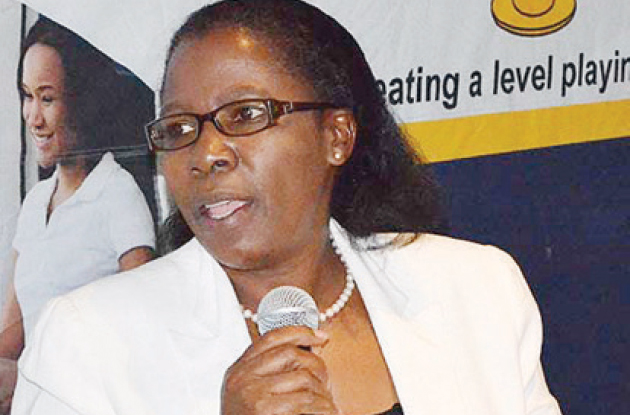
THE ministry of Industry and Commerce is making efforts aimed at prioritising the allocation of foreign currency to Bulawayo companies, so that they can import raw materials for their survival, an official has said.
BY MTHANDAZO NYONI

Speaking at the Confederation of Zimbabwe Industries Matabeleland Chapter breakfast meeting yesterday, Industry and Commerce deputy minister Chiratidzo Mabuwa said companies in Bulawayo should be prioritised in the allocation of foreign currency.
“We sit around every week with the Reserve Bank of Zimbabwe to try and prioritise the allocation of scarce resources of foreign currency and we want to sit with Affirmative Action (Group) for Bulawayo. I have already contacted the Ministry [officials] in Harare, who are very clear on that and the Reserve Bank people who allocate the foreign currency.
“Let’s have a deliberate effort for Bulawayo. This is if you want me to because they said, bring the solutions from there on how we can resuscitate Bulawayo as an industrial hub for the country and I said this is the prescription to say allocate them the resources that they so much need to import their raw material,” Mabuwa said.
“Of course the shortage of foreign currency is a temporary phenomenon, but in that temporary patch let’s have a deliberate effort of Bulawayo getting a piece of that scarce commodity.”
Mabuwa said there was limited networking in Bulawayo and people outside the city do not know what Bulawayo is producing.
“It’s not all who know what you are doing. Amongst ourselves here we don’t know what we are doing. Let alone, Zimbabwe does not know what Bulawayo is made of. I’m telling you I’m humbled that here in Bulawayo there are rich people,” she said.
- Chamisa under fire over US$120K donation
- Mavhunga puts DeMbare into Chibuku quarterfinals
- Pension funds bet on Cabora Bassa oilfields
- Councils defy govt fire tender directive
Keep Reading
“The engineering, textiles, food, personal protective clothing, leather industries that I visited; they have got meaningful balance sheets. But it is not what I hear. All what I hear is that Bulawayo is dead and that’s the brand. If you don’t brand yourselves, you get branded. So we have to brand Bulawayo. Bulawayo is not dead.”
Over 100 companies have closed in Bulawayo since 2009.
Mabuwa said landlords in Bulawayo preferred churches as tenants to industries in industrial designated areas because churches are considered as liquid.
She also said a number of companies in the engineering sector in Bulawayo were operating without certifications and patents.
Mabuwa has been in Bulawayo since July 24, visiting companies to understand their challenges and capabilities.











